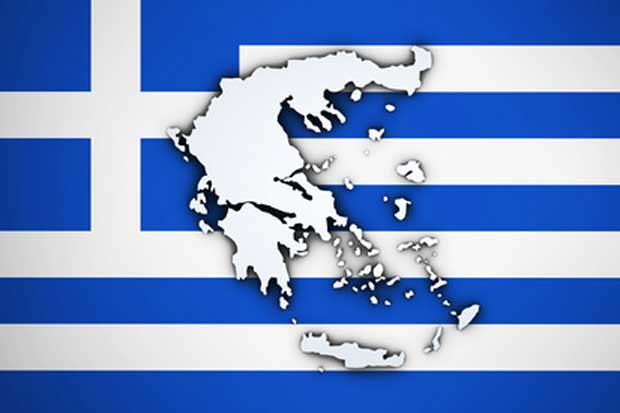Greece’s crisis is not about debt.
It is becoming increasingly clear that the austerity programs forced on Greece by Europe’s creditor powers and the International Monetary Fund have nothing to do with the repayment of debt.
There is a certain standard story about Greece that everyone takes for granted. In the good years, this story goes, the Greeks puddled their fingers deep into the public purse and waxed fat on welfare.
Eventually, the Greeks ran out of other people’s money to spend. So they went cap in hand to the frugal Germans and the IMF for a bail out. The Germans and the IMF agreed, reluctantly, to save the Greeks; but on the condition they got their house in order and swallowed some medicine – austerity.
It was this stock notion to which Tony Abbott was gesturing when he warned Australia was headed for a “Greek-style economic future”.
But as the force of events carries us forward, the reality behind the austerity drive is becoming all too obvious: it’s a Trojan horse for peeling back the welfare state and undermining democracy.
Here, it can help to turn to the facts.
The austerity programs introduced in the past five years have required Greece to freeze public sector pay; slash the minimum wage by one third; lower pensions 10 per cent; make it easier for businesses to fire staff; privatise its state industries; and unwind unemployment protections. It left Greece’s cash-starved hospitals running out of medicine.
Despite the justification for all this being that it would help Greece get out of debt, the austerity program has had the opposite effect, with debt rising from 130 per cent of GDP in 2010 to 178 per cent of GDP today.

It might be argued that in the long term Greece’s debt will decline. But as Mark Blyth, a professor of political economy at Brown University, has shown, austerity has always made debts harder to repay – both in the short term and the long term.
It is not only the weight of economic evidence that suggests austerity is not about debt. Europe’s political elite have also been quite open about the nature of the program, in their conversations with the business press at least. The president of the European Central Bank, Mario Draghi, is better placed than most to describe the nature of the reforms under way in Greece.
In an interview with the Financial Times he said that Greece “should understand they have lost sovereignty a long time ago over their economic policies” – lost it, that is, to the market. In another interview with the Wall St Journal he said that Europe’s social contract had become obsolete and was being dismantled.
Both Draghi’s observations are in keeping with the facts on the ground; both contradict the official notion that austerity is a remedy for debt.
But maintaining the failed austerity program is not just about peeling back the welfare state. It is also about hollowing out democracy and limiting public participation in politics.
This means that it doesn’t matter if Greeks elect a government which explicitly rejects the policies required by Germany and the IMF – as they did earlier this year when they voted for the anti-austerity Syriza party. It doesn’t matter what the outcomes of its democratic processes are. The policies its government pursues will be set in the headquarters of the IMF (Washington) and Europe’s creditor powers (Berlin).
As Peter Oborne, one of Britain’s most respected political commentators explains: “European elites have come very close to the abolition of what we have been brought up to regard as politics, and have replaced it with rule by bureaucrats, bankers, and various kinds of unelected expert.”
It might well be asked, what do Germany and its IMF associate have to gain from all this? While there is not the space here to pursue this important issue at length, the answer appears two-fold: locking in a permanent trade advantage and protecting German banks (90 per cent of bailout money has gone to financial institutions, mostly in Germany and France. It never even arrived in Greece).
All this is not to suggest that austerity was consciously introduced for these purposes: Europe’s political elite never sat around a desk plotting to whittle away democracy. But while this was not necessarily the intention of its architects, austerity is certainly having these effects: this is certainly how it has come to function.
Greece is due to cough up more money for the IMF this month. As the latest act in this tragedy plays out it stands to witness that the policies required of Greece are only secondarily, if at all, about paying down debt – their stated purpose.
Donate To New Matilda
New Matilda is a small, independent media outlet. We survive through reader contributions, and never losing a lawsuit. If you got something from this article, giving something back helps us to continue speaking truth to power. Every little bit counts.



